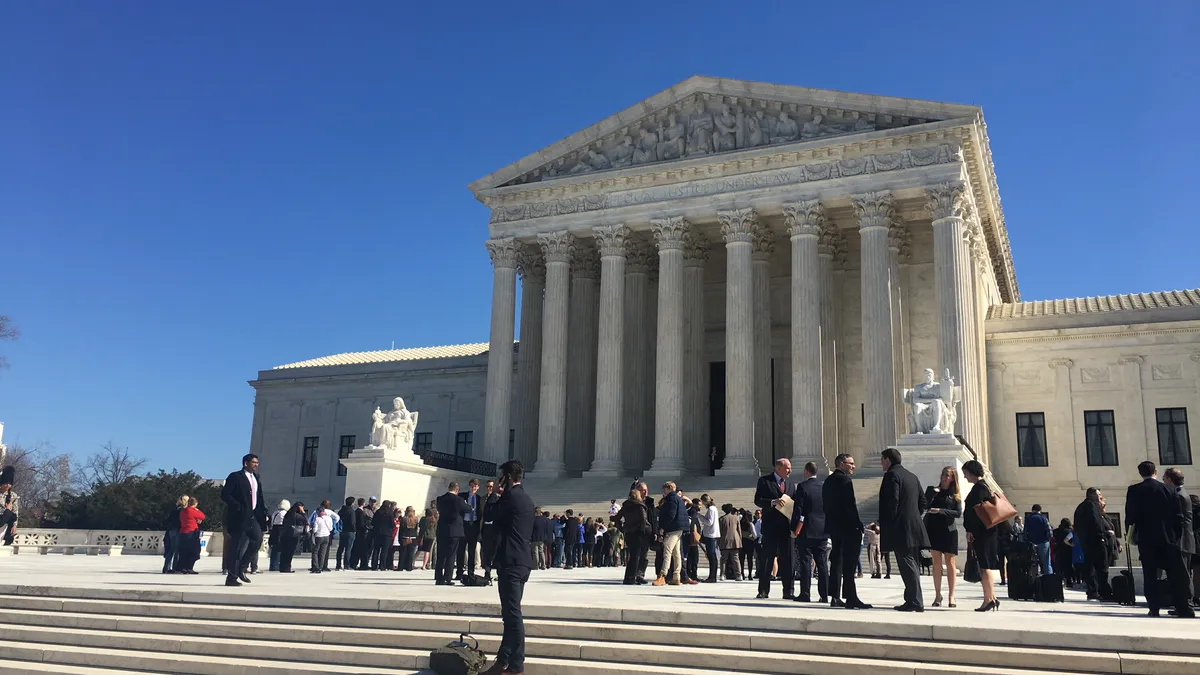Legal watchers of the Affordable Care Act (ACA) case before the U.S. Supreme Court said the two-hour Tuesday hearing bodes well for proponents of the law as two Republican-appointed justices seemed to strongly favor upholding the remainder of the law even if the individual mandate is struck down.
Both Chief Justice John Roberts and Justice Brett Kavanaugh pointed to the court's preference for removing provisions that are unconstitutional without striking down the entirety of a law, which the latest challenge asked them to do.
"It does seem fairly clear that the proper remedy would be to sever the mandate provision and leave the rest of the act in place, the provisions regarding pre-existing conditions and the rest — so the question to you, obviously, is: How do you get around those precedents on severability which seem on point here?" Kavanaugh asked the attorney representing the plaintiffs, Texas Solicitor General Kyle Hawkins.
While oral arguments and questions from the justices can help understand their legal reasoning, they don't necessarily indicate which way the court will rule, experts warn. The high court will release its decision in California v. Texas some time next year.
The crux of the case centers on the individual mandate and its penalty, which no longer exists. The challengers, a group of red states and two plaintiffs, are directly targeting the linchpin that saved the law when it was last before the Supreme Court. The court in 2012 ruled that the individual mandate could be considered a tax, and therefore was constitutional. Take that penalty away, and the plaintiffs argued it is no longer constitutional.
"I think it's hard for you to argue that Congress intended the entire act to fall if the mandate were struck down when the same Congress that lowered the penalty to zero did not even try to repeal the rest of the act. I think, frankly, that they wanted the court to do that. But that's not our job," Roberts said Tuesday.
In response to the chief justice, Hawkins said, "I would respectfully submit that it is this court's job to follow the text of the law as written." The plaintiffs argued that zeroing out the penalty is essentially a poison pill to the entire law.
The attorney for the U.S. House of Representatives, Donald Verrilli, said the plaintiffs were playing a game of "gotcha," but warned, "this is not a game."
"There is just no way that Congress would have preferred an outcome that throws 23 million people off their insurance, ends protections for people with preexisting conditions and creates chaos in the healthcare sector," Verilli said.
Overall, the justices directed much of their questioning around standing, or whether the plaintiffs even have the right to bring the case before the court. Perhaps most notably, they did not ask questions about which parts of the law should be saved if they decide to sever one piece.
"All that's a good sign for the law," Katie Keith, a lawyer and health policy expert at Georgetown University, said. "It suggests that they're not going to do this line drawing that were were concerned about."
Prior to the hearing, proponents of the law feared the justices would seek to take a whack at the core protections enshrined in the law.














